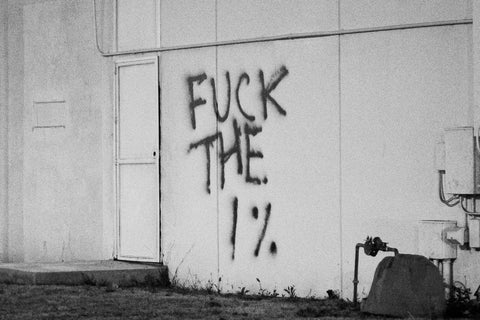Capitalism Is Killing American Democracy
For centuries, capitalism and democracy were known to be the yin to the other’s yang. The two put together are destined to be the pillars of an ideal, harmonious society, right? Yet today, the world’s economic powerhouses, like China, leave its citizens powerless in the shadow of capitalism. As Chinese President Xi Jin Ping reasserts the state’s dominating role in economics, China’s economy has experienced unprecedented growth in the past decade. On the other hand, American democracy is on the brink of economic recession. But why?
An inevitable product of capitalism is inequality. The nature of capitalism is that goods are privately owned, meaning individuals have absolute right to their own private property and income. This creates a massive profit drive where individuals seek to build up their own capital, simultaneously dividing American society into “employers” and “employees.” Those who succeed in business ventures and have created their own capital also have an incentive to monopolize and expand their wealth at the expense of the ordinary worker. As a result, the working class faces the burden of reduced wages, higher costs, and other barriers to a decent quality of life. The wealthy continue to accumulate wealth, and class differences become a long term, cyclical harm. Those with the financial capability to access private property are able to monopolize goods and profit off the labor of low wage workers, propelling a small privileged population to the top. In the last year, America’s top 1% amassed 6.5 trillion dollars and now dominate a record 32% of the nation’s wealth. As capitalism furthers its creeping influence, socioeconomic differences deprive the proletariat of equal opportunities.
However, wealth is not the only thing privileged capitalists control. With wealth comes financial power, and with financial power comes political power. The financial might of megamillion enterprises causes them to generate excessive political influence as well. Wealthy individuals and corporations have been spending more money than ever before on political lobbying, bribing, and swaying legislation.
In 2019, the Fortune 100 companies spent a whopping $2 billion dollars on political lobbying and are able to push for policies that exclusively benefit the top few percentiles. Political lobbying succeeds when politicians and legislators buy into their incentives because they care about their profit, and when given the choice between morals and money, they will always choose the latter. Oftentimes, this looks like legislation such as wealth taxes being denied, even when it could provide impoverished communities with upward mobility to escape poverty. In the end, the rich get what they want at the expense of the average citizen.

Capitalism’s drastic inequalities are in tension with the basic purpose of democracy. While capitalism seeks to create profit-driven trade and place power in unequal private businesses, democracy is designed to reduce such inequalities and shape a society that benefits all people. The power to financial capital does not solely give wealthy Fortune 500s the chance to support campaigns. Rather, it provides them with overwhelming leverage to skew entire elections and economies in their favor. As the top few percent decide the political trajectory of America, it leaves a deficit of support in policies that pertain to the rest of the population.
Our democracy is dying, and people need to be aware of it. The inequalities generated by capitalism and political lobbying do not just exacerbate class divisions, but they fundamentally hinder a political system that benefits lower income workers.
Today, the once fine line between capitalism and democracy is growing increasingly blurry, and it is people like you and I that are caught in the crossfire. Is there truly a way for absolute private property and true democracy to co-exist? American history says clearly not, and as for the future, only time will tell.
Credit main image: llustration by Joey Guidone for Harvard Business Review
Written by Sophia Li
Follow Sophia on Instagram


Leave a comment